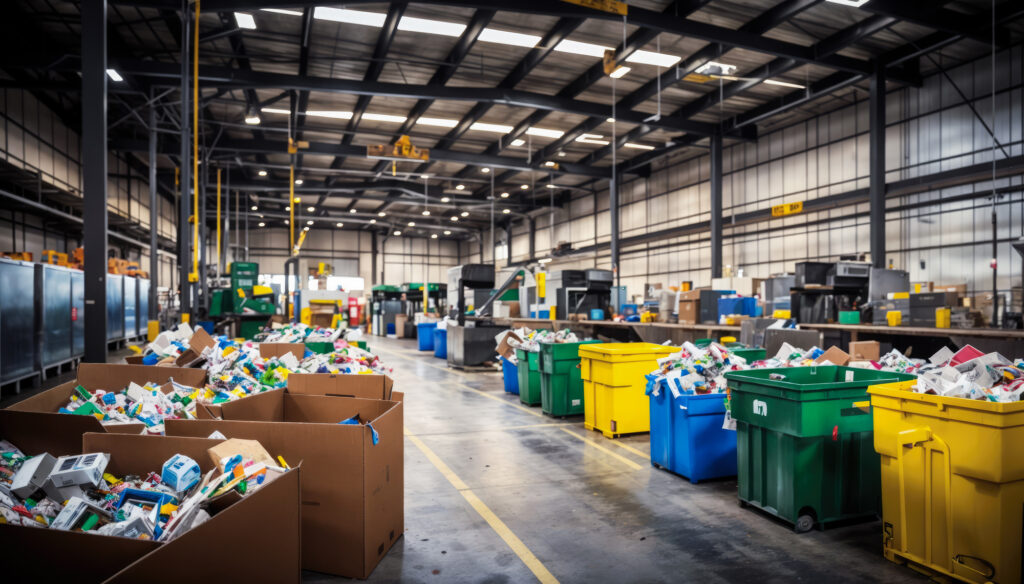#youngentrepreneurs #entrepreneurship #entrepreneurlife

#youngentrepreneurs #youngentrepreneur #entrepreneurship

Overnight success is a fairy tale #entrepreneurship #entrepreneurlife #entrepreneur

Entrepreneurship is not about freedom!#entrepreneurship #entrepreneurlife #entrepreneur

Confidence is overrated #sales #salestips #salesstrategy

I didn`t study this, I lived it! Available on Amazon.

In today’s fast-moving and competitive manufacturing world, businesses face many challenges that can slow down their growth and profits. From supply chain problems to not having enough skilled workers, these obstacles can seem too difficult to overcome. However, by embracing new ideas and adopting the right strategies, manufacturers can overcome these hurdles and achieve long-lasting success.
Keep reading to learn how.
Embracing Automation and Digitalization
One of the most significant challenges facing modern manufacturers is the need to enhance efficiency and productivity. Manual processes can be time-consuming and prone to errors, leading to costly delays and inefficiencies. To address this, manufacturers are turning to automation and digitalization. By implementing advanced technologies such as robotics, artificial intelligence, and MRP software, companies can streamline their operations, reduce errors, and improve overall productivity.
Automation can be applied to various aspects of the manufacturing process, from material handling and assembly to quality control and packaging. Robotic systems can perform repetitive tasks with precision and consistency, reducing the risk of human error and increasing throughput. Additionally, AI-powered systems can analyze vast amounts of data to identify bottlenecks, optimize processes, and make data-driven decisions.
MRP software, in particular, plays a crucial role in streamlining production planning and inventory management. These systems help manufacturers coordinate the flow of materials, manage stock levels, and ensure the timely delivery of finished products. Such efficiency allows companies to gain end-to-end visibility and control over their operations, enabling them to respond quickly to changing demands and market conditions. Gaining these benefits is all the more palpable with MRP software from reputable providers.
Optimizing Supply Chain Management
Supply chain disruptions can have far-reaching consequences, from inventory shortages to production delays. To mitigate these risks, manufacturers must adopt robust supply chain management strategies. These involve leveraging technology to gain real-time visibility into the entire supply chain, from raw materials to finished products. This way, manufacturers can anticipate potential disruptions and proactively develop contingency plans.
Real-time tracking and monitoring systems, enabled by technologies like RFID, IoT sensors, and blockchain, can provide manufacturers with up-to-the-minute information on the location and condition of their goods. This transparency allows them to quickly respond to issues such as delays, quality problems, or unexpected demand fluctuations.
Moreover, predictive analytics can help manufacturers identify potential supply chain risks before they occur, enabling proactive risk mitigation strategies.
Fostering a Skilled Workforce
The manufacturing industry faces a growing skills gap, with many experienced workers nearing retirement age. This can hamper productivity and innovation. To address this challenge, manufacturers must invest in training and development programs to upskill their existing workforce and attract new talent. Additionally, fostering partnerships with educational institutions and offering apprenticeship programs can help cultivate a pipeline of skilled workers for the future.
Offering comprehensive training programs that cover both technical and soft skills can help manufacturers develop a well-rounded and adaptable workforce. These can encompass hands-on training, virtual reality simulations, and e-learning platforms, ensuring that employees have access to diverse learning opportunities. Furthermore, providing clear career paths and opportunities for advancement can help retain top talent and foster a culture of continuous learning.
Embracing Sustainability and Environmental Responsibility
As consumers become increasingly conscious of environmental issues, manufacturers are under pressure to adopt sustainable practices. These can include reducing energy consumption, minimizing waste, and implementing eco-friendly processes. By embracing sustainability, manufacturers not only reduce their environmental impact but also appeal to environmentally conscious consumers, potentially gaining a competitive advantage.
Implementing energy-efficient technologies, such as LED lighting, motion sensors, and renewable energy sources, can significantly reduce a manufacturer’s carbon footprint and operational costs. Additionally, adopting lean manufacturing principles and circular economy strategies can help minimize waste and promote resource efficiency. Manufacturers can also explore sustainable packaging solutions, such as biodegradable materials or reusable containers, to further reduce their environmental impact.
Adapting to Changing Customer Demands
In today’s dynamic marketplace, customer demands are constantly evolving. Manufacturers must be agile and responsive to these changing needs. This may involve offering customized products, adopting mass personalization strategies, or leveraging data analytics to anticipate customer preferences. By staying attuned to customer demands, manufacturers can maintain a competitive edge and foster customer loyalty.
Leveraging technologies like additive manufacturing (3D printing) and flexible manufacturing systems can enable manufacturers to produce customized products cost-effectively and at scale. Additionally, integrating customer data and feedback into product development processes can help manufacturers design products that better meet consumer needs and preferences. Furthermore, predictive analytics can help manufacturers anticipate shifts in demand, allowing them to adjust production schedules and inventory levels accordingly.
Transitioning to New Technologies
Failure to embrace new technologies can leave manufacturers at a disadvantage, as their competitors leverage these innovations to gain a competitive edge.
Staying up-to-date with emerging technologies and conducting pilot projects or proof-of-concept trials can help manufacturers assess the potential benefits and challenges of new technologies before implementing them at scale. Additionally, fostering a culture of innovation and encouraging cross-functional collaboration can help manufacturers identify opportunities for technological adoption and ensure a smooth integration process.
Conclusion
Overcoming the challenges faced by modern manufacturers requires a proactive and holistic approach. By embracing automation, optimizing supply chain management, fostering a skilled workforce, embracing sustainability, and adapting to changing customer demands, manufacturers can break down barriers and position themselves for long-term success. With the right strategies and a commitment to innovation, manufacturers can navigate the complexities of the modern manufacturing landscape and thrive in an ever-evolving business environment.










